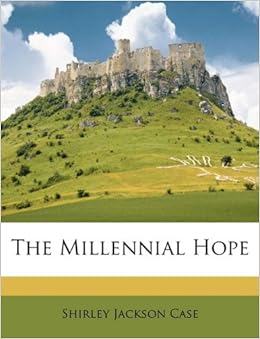Case follows the history of millennial thinking from the ancients to her contemporary times in the early twentieth century. She does this not just for Judeo-Christian thought, with which millennialism is most associated, but for ancient non-Jewish cultures as well. It is this latter exploration that is perhaps the most interesting portion of her book.
In terming non-Jewish beliefs "millennialism," Case is stretching the term a bit. What's she's really exploring is end--of-the-world ideas and apocalyptalism, though millennialism--the idea that some kind of one-thousand-year reign of peace on earth--certainly had correspondence among some non-Jewish peoples. Egyptians, Babylonians, and Persians all had their counterpart ideas regarding a Messiah-like figure, mediator, or god who would somehow bring about new hope and/or judgment of the forces of darkness. The Greeks had a tendency to view the world as constantly growing more evil. Romans viewed world history as happening in cycles, from decadence to order and back again, with the Augustine age being one in which order was at the ascendant.
Case next covers Jewish ideas, before crossing over to Christian. The ideas of Messiah among the Jews of the first century are well covered elsewhere, so Case's exploration didn't particularly anything new to me. Early Christianity fit well within these ideas of a Messiah to appear and then reappear, one that proved to be shockingly disappointing to many when that return of the Messiah did not come within the first generation of believers' lifetime. With time, messianisim and millennialism faded among Christians to a heavier emphasis on individual salvation and spiritual rewards rather than a physical kingdom--the subject of the first part of Case's next chapter. The rest of that chapter focuses on millennial movements through time, including in the Middle Ages and 1800s. The historical summary here is just that--and thus not wholly satisfying.
But Case has another point in exploring her topic, and that is largely to argue that such world views are actually destructive to human endeavors to bring about a better world. After all, if we believe that the world is to be brought to a devastating end by forces beyond our control, prophetic ones that are fated long ago, then there is little reason for us as a human race to change our ways and to strive for a better society. There is some merit to such an argument, one that fits well with the fears and arguments over climate change today; at the same time, espousing a hope beyond ourselves is perhaps the only hope there is--but it should not preclude our doing the best that we can. Unfortunately, for many, such fatalism is exactly the excuse that is used to posit doing nothing--or even helping to bring on terrible events (as we might think of various religious adherents who actually try to spark conflict in order to, in their view, force God's hand).







No comments:
Post a Comment